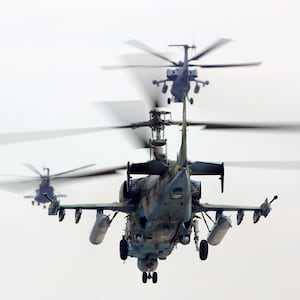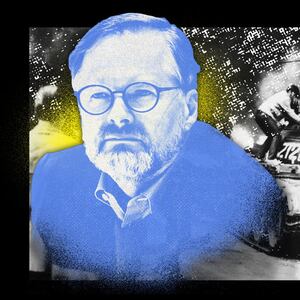Russian missiles are landing within 100 miles of Moldova’s borders. Mysterious explosions rocked the headquarters of a security agency in the country’s Russian-backed separatist enclave last month. An economic crisis is looming. And a Russian general has threatened an expansion of the war in Ukraine to the Moldovan border.
Unlike other western neighbors that are receiving Ukrainian refugees, Moldova is not a European Union member, and it does not have the resources the bloc has to house and absorb the rapid flow of asylum-seekers. Yet Moldova has received more Ukrainian refugees per capita than any EU state, in a piling-up of crises that has stirred concerns that the tiny southeastern European country could become the first site of spillover violence from Ukraine.
In an exclusive interview with The Daily Beast, Nicu Popescu, Moldova’s minister of foreign affairs and European integration, called on the United States and the EU to pay more attention to Moldova’s struggle, in order to maintain the economy and security of the country. He asked for “flexible and rapid aid to Ukraine’s most vulnerable neighbor.”
Since the first Russian bombs fell on the Ukrainian city of Odesa on Feb. 24, Moldova, a country of some 2.6 million people, has received more than 400,000 refugees escaping Vladimir Putin’s devastating war. Most end up transiting to other countries, but about 100,000 have remained. Ukrainians escaping violence to Moldova were received with a warm welcome; volunteers were waiting for refugees with homemade food, a friendly hug and accommodations at private homes. But resources are strained.
Unlike Germany, where the average monthly wage is about 3,900 euros, Moldovans make around 500 euros a month. It is an agricultural country with an economy that is largely dependent on fruit and vegetable exports to Russia through Ukraine, a trade now shut down by the war next door. Prices for food, clothes, and gasoline have increased dramatically during the 77-day war.
Adding to that, Moldova was recently shaken by a series of mysterious explosions in its breakaway territory of Transnistria, the base for about 1,500 Russian soldiers. “We were deeply concerned,” Popeskto said. “There is a spectrum of scenarios, threats, and risks.”

Ukrainian refugees waiting to cross the border on April 9.
Matteo Placucci/NurPhoto via GettyJust a few days before the explosions, senior Russian commander Rustam Minnekayev spoke of linking Moldova’s separatist area with a Russian-occupied zone in Ukraine along the Black Sea, essentially suggesting an expansion of the conflict into Moldova. It is still unclear who was behind the rocket-propelled grenade attacks on the headquarters of Transnistria’s security services and some Soviet-era radio towers. Moldova’s reformist president, Maya Sandu, condemned the attacks as “attempts to lure the Republic of Moldova into actions that could jeopardize peace.”
Authorities say there are no imminent risks of the expansion of Russia’s war, but the fear that Moldova could turn into the next Ukraine is certainly getting to citizens. The country already has its own internally displaced people, moving westward away from possible attacks. Several thousand people have moved since the start of the war in Ukraine, Popescu told The Daily Beast.

Ukrainian refugees embrace after reuniting on their way back to Ukraine along the Ukrainian-Moldovan border on April 12.
Christophe Archambault/AFP via GettyMoldova faces internal political divisions, too. According to a study conducted by the CBS Research Agency with the help of the Moldovan Institute for Strategic Initiatives, only 40 percent of the population believes that Russia’s invasion of Ukraine was unprovoked, while 23 percent of Moldovans accept the Russian justification for the war—that Moscow is defending the Donbas region.
The founder of the Moldovan media outlet Newsmaker, Vladimir Solovyev, told The Daily Beast that Moldova’s problems have been “piling up” rapidly, and that the West should realize that “Moldova practically has no army, its security threats are huge, and there is an economic crisis.”
Moldova does have allies in Europe. The EU parliament has adopted a resolution to welcome Moldova’s membership application, which was signed by President Sandu earlier this year. But every application takes time. “Every single Moldovan institution—our intelligence, defense ministry, our ministry of economy, police—everybody is on highest alert," Popescu said.
“Our society strongly votes for independence, for democracy, for joining the European Union as soon as possible,” the minister told The Daily Beast. “The absolute majority of Moldovan citizens, as well as people in Transnistria, want peace. We hear voices from Russia—some ideas of rebuilding the Soviet Union. But the Soviet Union is dead.”








